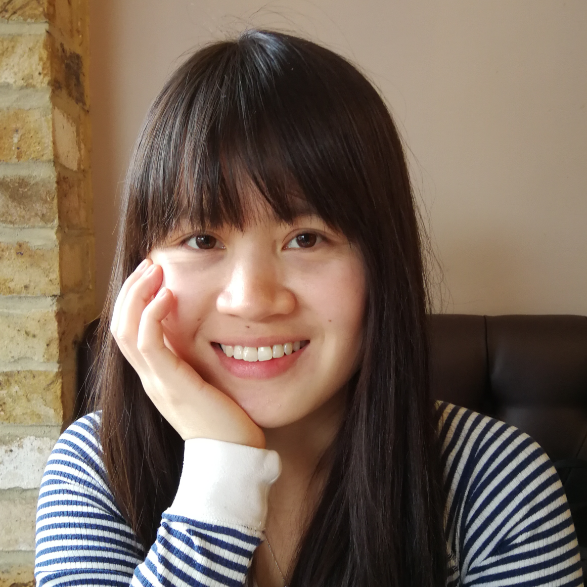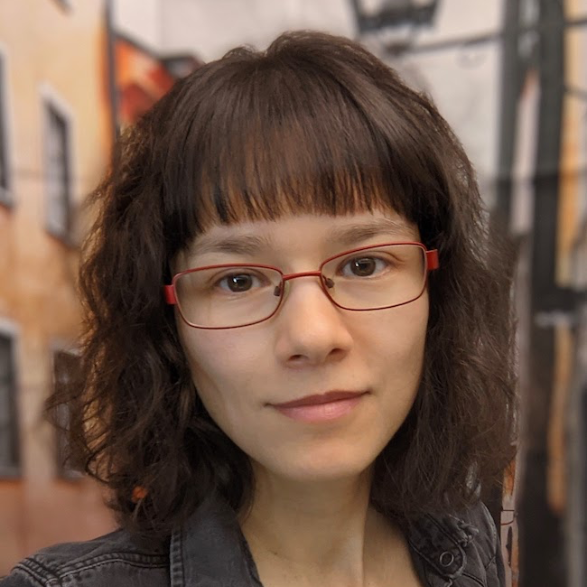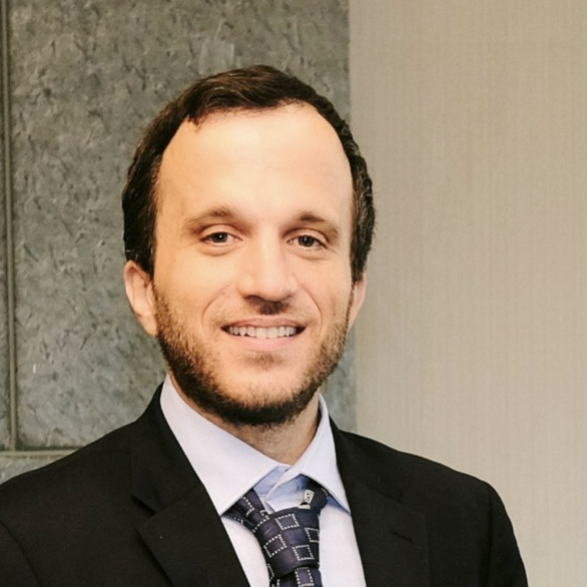Panels
Panels
Algorithmic foundations to improve real-world Reinforcement Learning
Panel I

Qi DOU
The Chinese University of Hong Kong (CUHK)
Dr. Qi DOU is an Assistant Professor with the Department of Computer Science and Engineering at The Chinese University of Hong Kong. She is also an Associate Member of the T Stone Robotics Institute and Multi-Scale Medical Robotics Center at CUHK. She got her PhD in computer science at CUHK, and worked as postdoc at Imperial College London. Her research focuses on synergistic innovations across machine learning, medical image analysis, surgical data science and medical robotics, with an impact to support demanding clinical workflows for improving patient care. Dr. Dou has recent works on surgical robot learning and embodied intelligence.
She serves as the associate editor for Journal of Machine Learning for Biomedical Imaging, Computer Assisted Surgery, and serves as program co-chair of IPCAI 2023, MICCAI 2022, MIDL 2022&2021. She also serves as an organization committee member for medical imaging workshops in conferences such as MedNeurIPS and CVPR-MCV.

Fabio Ramos
NVIDIA and University of Sydney
Fabio is a Principal Research Scientist at NVIDIA, and Professor in machine learning and robotics at the School of Computer Science, University of Sydney. Before, Fabio was a co-Director of the Centre for Translational Data Science, and previously an Australian Research Council (ARC) Research Fellow at the Australian Centre for Field Robotics.
Fabio's research is focused on modelling and understanding uncertainty for prediction and decision making tasks, and includes Bayesian statistics, data fusion, anomaly detection, and reinforcement learning. Over the last ten years Fabio has applied these techniques to robotics, mining and exploration, environment monitoring, and neuroscience.

Bei Peng
University of Liverpool
Bei Peng is a Lecturer (assistant professor) in Artificial Intelligence in the Department of Computer Science at the University of Liverpool. Prior to Liverpool, she spent about 2.5 years as a Postdoctoral Researcher in the Whiteson Research Lab at the University of Oxford, advised by Shimon Whiteson. She was also a Non-Stipendiary Lecturer in Computer Science at St Catherine’s College at the University of Oxford.
Her research focuses mainly on (deep) reinforcement learning, multi-agent systems, interactive machine learning, and curriculum learning. My primary research goal is to develop reinforcement learning algorithms that are more sample-efficient, robust, and scalable, with or without interacting with humans.

Michael Lutter
Boston Dyanmics
Michael Lutter is a research scientist at Boston Dynamics. Within the Atlas team, he works on applying reinforcement learning to legged locomotions. Prior, he completed his Ph.D. supervised by Jan Peters at the Institute for Intelligent Autonomous Systems (IAS) TU Darmstadt in November 2021. During his Ph.D., he researched inductive biases for robot learning. Michael also worked with ABB Corporate Research on a joint research project to evaluate the application of robot learning to industrial applications. He completed a research internship at DeepMind, NVIDIA Research and received multiple awards for his research including the George Giralt Ph.D. Award (2022) for the best robotics Ph.D. thesis in Europe and the AI newcomer award (2019) of the German computer science foundation.
From 2016 to 2017, Michael held a researcher position at the Technical University of Munich (TUM) for bio-inspired learning for robotics. During this time he worked for the Neurorobotics subproject of the Human Brain Project, a European H2020 FET flagship project. In addition, he taught the classes "Deep Learning for Autonomous Systems” and “Fundamentals of Computer Science for Neuroengineering” within the Elite Master Programm Neuroengineering and participated in teaching Think. Make. Start., a two-week prototyping course. His educational background covers a Bachelors in Engineering Management from University of Duisburg Essen and a Masters in Electrical Engineering from the Technical University of Munich. During his undergraduate studies he also spent one semester at the Massachusetts Institute of Technology studying electrical engineering and computer science. In addition to his studies, Michael worked for ThyssenKrupp, Siemens and General Electric and received multiple scholarships for academic excellence.
Reinforcement Learning in and From the Real World
Panel II

Rika Antonova
Stanford University
Rika Antonova is a postdoctoral scholar at Stanford University and a recipient of NSF/CRA Computing Innovation Fellowship for research on active learning of transferable priors, kernels, and latent representations for robotics. Prior to joining Stanford, she completed her PhD work on data-efficient simulation-to-reality transfer at the Robotics, Perception and Learning lab at KTH Royal Institute of Technology. During her PhD time, she interned at NVIDIA Robotics (Seattle, USA) and Microsoft Research (Cambridge, UK).

Stefanos Nikolaidis
University of Southern California
Stefanos Nikolaidis is an Assistant Professor in Computer Science and the Fluor Early Career Chair at the University of Southern California, where he leads the Interactive and Collaborative Autonomous Robotics Systems (ICAROS) lab. His research draws upon expertise on artificial intelligence, procedural content generation and quality diversity optimization and leads to end-to-end solutions that enable deployed robotic systems to act robustly when interacting with people in practical, real-world applications.
Stefanos completed his PhD at Carnegie Mellon's Robotics Institute and received an MS from MIT, a MEng from the University of Tokyo and a BS from the National Technical University of Athens. In 2022, Stefanos was the sole recipient of the Agilent Early Career Professor Award for his work on human-robot collaboration, as well as the recipient of an NSF CAREER award for his work on “Enhancing the Robustness of Human-Robot Interactions via Automatic Scenario Generation.” His research has also been recognized with best paper awards and nominations from the IEEE/ACM International Conference on Human-Robot Interaction, The Genetic and Evolutionary Computation Conference, the International Conference on Intelligent Robots and Systems, and the International Symposium on Robotics.

Nadia Figueroa
University of Pennsylvania
Nadia Figueroa is the Shalini and Rajeev Misra Presidential Assistant Professor in the Mechanical Engineering and Applied Mechanics (MEAM) Department at the University of Pennsylvania. She holds a secondary appointment in the Computer and Information Science (CIS) department and is a faculty advisor at the General Robotics, Automation, Sensing & Perception (GRASP) laboratory. Before joining Penn, Nadia was a Postdoctoral Associate in the Interactive Robotics Group of the Computer Science and Artificial Intelligence Laboratory (CSAIL) at the Massachusetts Institute of Technology (MIT), advised by Prof. Julie A. Shah.
Nadia obtained a Ph.D. in Robotics, Control and Intelligent Systems from the Swiss Federal Institute of Technology in Lausanne (EPFL), advised by Prof. Aude Billard. Prior to this, she spent time as a Research Assistant in the Robotics and Mechatronics Institute at the German Aerospace Center and at NYU Abu Dhabi. She holds a B.Sc. in Mechatronics from Monterrey Tech and M.Sc. in Automation and Robotics from TU Dortmund.

Daniel Brown
University of Utah
Daniel Brown is an Assistant Professor in the Robotics Center and School of Computing at the University of Utah. Previously, he was a postdoc at UC Berkeley working on human-in-the-loop robot learning. He received his PhD in 2020 from the CS department at UT Austin.
His research focuses on robot learning under uncertainty, reward inference from human input, and AI safety. In particular, Daniel has worked on methods that give a robots and other autonomous agents the ability to provide high-confidence bounds on performance when learning a policy from a limited number of demonstrations, ask risk-aware queries to better resolve ambiguities and perform robust policy optimization from demonstrations, learn more efficiently from informative demonstrations, learn from ranked suboptimal demonstrations, even when rankings are unavailable, and perform fast Bayesian reward inference for visual control tasks.
© RL-CONFORM. All Rights Reserved. Designed by HTML Codex